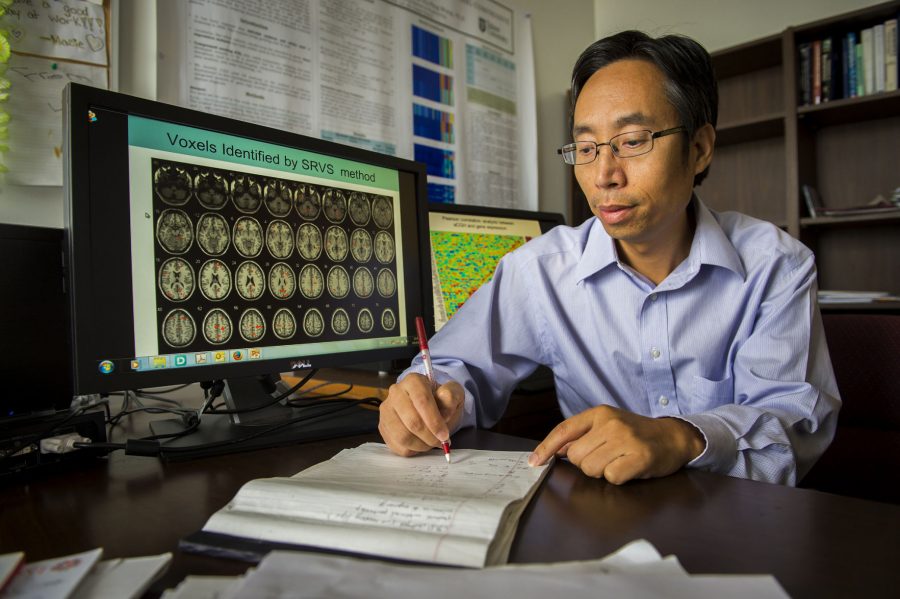Tulane research group part of $5.9 million grant to study adolescent brains
Dr. Yu-Ping Wang is an associate professor in Tulane’s biomedical engineering department. He was awarded a portion of a $5.9 million grant by the National Science Foundation to study development of the adolescent brain over time to develop more effective diagnosis methods for mental illness.
October 28, 2015
Over the past year, mental health has come to the forefront of the campus conversation as Tulane works to address its students struggles with mental health. One professor is using his research to contribute to the conversation.
Dr. Yu-Ping Wang, an associate professor in the biomedical engineering department, recently received a portion of a $5.9 million grant from the National Science Foundation to study the development of the adolescent brain over time with the aim of coming up with better diagnosis methods for mental illnesses.
“It is very hard to distinguish between, say, schizophrenia and bipolar disorder,” Alexej Gossman, a PhD student in mathematics working in Wang’s lab, said. “It’s not clear what the distinction is — because all the currently available definitions kind of overlap — so we are trying, based on brain imaging and genetics, to find a clear distinction between the different diseases.”
Wang’s research group is receiving a $1.2 million portion of the grant from the National Science Foundation. The rest will be distributed between researcher groups at the University of New Mexico and the University of Nebraska Medical Center, both of which Dr. Wang’s group are collaborating with.
Each institution is tasked with a different part of the research. At the University of New Mexico, they are collecting brain imaging data from patients. Researchers at the University of Nebraska Medical Center scan the brain with a type of technology that can look at brain connectivity and brain dynamics. Both groups then send their data to the researchers at Tulane.
“When a child develops, their brain connectivity network will change from time-to-time,” Wang said. “At Tulane, we’re good at genomics and data analysis, so their project is good for us to join efforts with.”
Here in New Orleans, Wang and his researchers analyze the data with the hope of developing software that can help biomedical researchers create a mathematical model that can allow them to do better data analysis and optimize treatments.
“For a disease, there may be several types,” Wang said. “The genetic makeup is different, so we can tailor the treatment based on the patient’s particular genetic makeup. This is individualized medicine.”
Wang’s lab’s multidisciplinary approach was key in obtaining the grant.
“In the past, I think people tried to analyze the diseases only based on genetics, or only based on the brain data,” Gossman said. “And we are trying to combine the two data types.”
Wang’s background is a mosaic of mathematics, computer science, electrical engineering, computer engineering, biomedical imaging and bioinformatics.
“The message I want to give students is that you do not need to limit yourself to a particular discipline,” Wang said. “I step out of my own comfort zone, I talk to people from other disciplines, from neuroscience to biology to genetics to statistics, so I can understand their languages, understand their challenges, and that marries the mathematical and engineering approach with those biomedical challenges.”
Wang is currently looking for four more undergraduates with a background in neuroscience, engineering, mathematics, computer science or the physical sciences to join his research team as paid assistants.










Leave a Comment